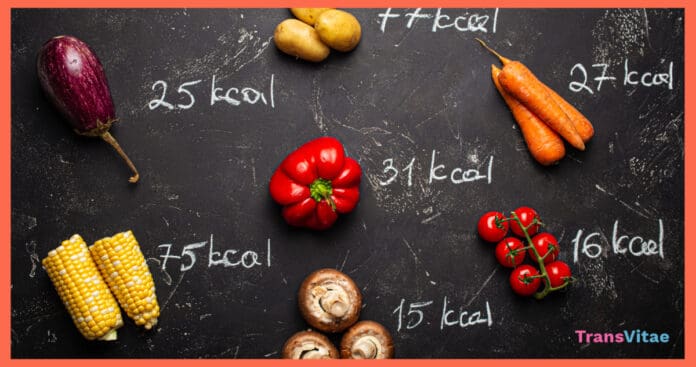As a trans woman and former competitive bodybuilder, I understand the complexities of building and maintaining a physique. Before transitioning, counting calories was my training manual. It wasn’t just about achieving that shredded look; it was about understanding my body’s fuel needs and optimizing them for peak performance.
Let’s be honest, navigating the fitness world post-transition feels like a whole new game. Hormone changes, body composition shifts, and the emotional rollercoaster of self-discovery all impact our relationship with food and exercise. But here’s the empowering truth: counting calories can be a powerful tool throughout this journey, and it goes way beyond weight loss.
Building Confidence Through Knowledge: My Counting Calorie Journey
During my bodybuilding days, counting calories wasn’t a chore; it was a strategic puzzle. Every macronutrient; protein, fat, and carbs, all played a crucial role in sculpting the physique I envisioned. Tracking my intake allowed me to fine-tune my diet for muscle growth and fat reduction. It wasn’t about restriction, but about intentionality.
This focus on mindful eating transitioned beautifully into my life post-competition. Having a grasp on calorie needs helped me fuel my body for intense workouts while maintaining a healthy weight. More importantly, it helped me navigate social situations where food is often at center stage. Knowing what fit my macros allowed me to make informed choices without feeling like I was missing out.
Science on Our Side: The Benefits of Counting Calories
My experience aligns with what the research says. A 2019 study published in the National Institutes of Health (NIH) journal 肥胖 (Féipàng, meaning “obesity”) found that calorie counting, along with dietary self-monitoring, led to significant weight loss in adults. But the benefits go beyond the scale.
A 2017 review published in the Journal of the Academy of Nutrition and Dietetics suggests that calorie counting can improve dietary quality. By tracking your intake, you become more aware of portion sizes and hidden calories, which can nudge you towards healthier choices. This can be especially helpful for trans women who might be experiencing changes in appetite or metabolism due to hormone therapy.
Counting Calories for Your Trans Journey: It’s Personal
Here’s the key takeaway: counting calories isn’t a rigid formula. Your specific needs will depend on factors like your activity level, goals (muscle gain, weight loss, or maintenance), and where you are in your transition journey.
Here are some tips to tailor calorie counting to your unique needs:
- Consult a healthcare professional or registered dietitian: Discuss your goals and any concerns you may have about calorie counting, especially if you’re undergoing hormone therapy. They can help you create a personalized plan that factors in your individual needs.
- Focus on macronutrients, not just calories: Aim for a balanced intake of protein, fats, and carbs to support muscle health, energy levels, and overall well-being.
- Be flexible: Your calorie needs may change throughout your transition journey. Be mindful of your body’s hunger cues and adjust your intake accordingly.
- Make it easy with MyFitnessPal: This user-friendly app has a vast food database and makes calorie tracking a breeze.
Beyond the Numbers: Building a Healthy Relationship with Food
Remember, counting calories is a tool, not a dictator. It’s about empowering yourself with knowledge and making informed choices. Here are some additional tips to cultivate a healthy relationship with food during your transition:
- Celebrate non-scale victories: Focus on how your body feels and the progress you’re making, not just the number on the scale.
- Practice mindful eating: Pay attention to your hunger and fullness cues. Eat slowly and savor your food.
- Don’t deprive yourself: Allow yourself occasional treats. Restrictive diets can lead to unhealthy relationships with food.
- Focus on self-compassion: Be kind to yourself throughout this journey. There will be setbacks, but consistency is key.
The Takeaway: Counting Calories Can Be Your Trans Ally
Counting calories might seem overwhelming at first, but with the right approach, it can become a valuable tool for navigating your post-transition journey. It empowers you to take control of your health, fuel your body for your goals, and build lasting confidence from the inside out.
Remember, you’re not alone in this. There are healthcare professionals, support groups, and online resources available to help you along the way. So embrace the journey, and don’t be afraid to experiment. You’ve got this!


